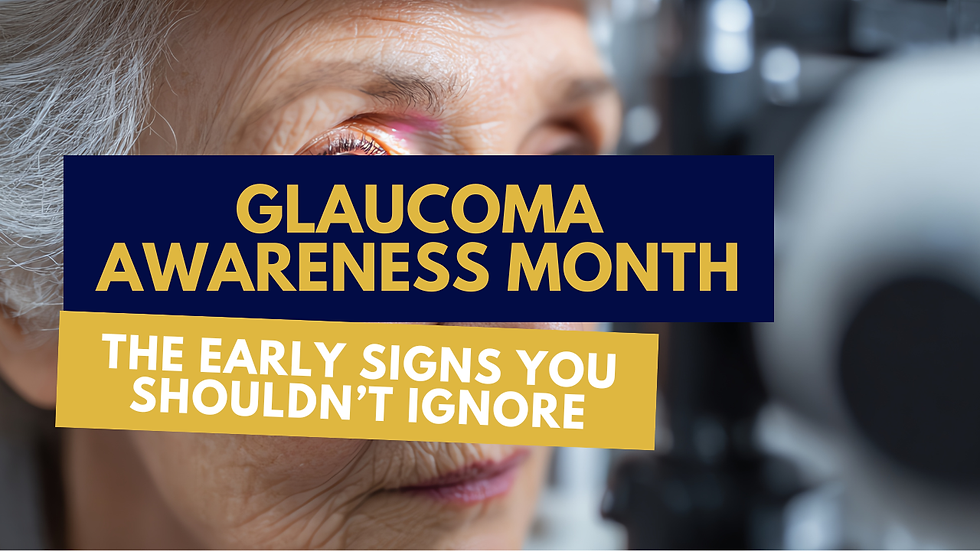Cataract Awareness Month 2025
- Michéal O'Rourke
- Jun 4, 2025
- 2 min read
Updated: Aug 3, 2025
Recognise the Signs and Restore Your Vision
Cataracts are a common yet often overlooked cause of visual decline, especially as we age. During Cataracts Awareness Month this June, we’re encouraging patients to learn the symptoms, understand the treatment options, and seek help early — because clear vision is too valuable to lose gradually and silently.

What Are Cataracts?
Cataracts occur when the normally clear lens of the eye becomes cloudy, often due to ageing. This clouding affects how light enters the eye and can significantly reduce visual clarity over time.
Common Symptoms of Cataracts:
Cataracts usually develop slowly, making symptoms easy to dismiss at first. You may notice:
Blurred or cloudy vision
Difficulty seeing clearly at night
Increased sensitivity to light and glare
Colours appearing faded or yellowed
Frequent changes in glasses prescription
Halos around lights
Trouble reading or driving, especially in low light
If you’re experiencing any of these symptoms, it may be time to have your eyes examined by a specialist.
How Are Cataracts Treated?
The only effective treatment for cataracts is surgical removal. Cataract surgery is a highly successful, straightforward procedure performed under local anaesthetic. During the operation, the cloudy lens is removed and replaced with a clear artificial lens (intraocular lens or IOL).
Mr Michael O’Rourke, Consultant Ophthalmic Surgeon, has extensive experience in cataract and lens surgery. He offers a tailored approach to each patient, discussing lifestyle needs and lens options — including premium lenses that may reduce dependence on glasses after surgery.
Life After Cataract Surgery
The improvement in vision can be life-changing. Patients often report brighter colours, sharper detail, and greater confidence in daily activities such as reading, driving, and enjoying the outdoors.
To illustrate this transformation, we’ve shared a powerful photo on social media: a beach scene as seen before and after cataract surgery. On one side, a dull, hazy image. On the other, crisp detail and vibrant colour — a perfect metaphor for the potential outcome of treatment.

Don’t Wait to Act
Early diagnosis is crucial. If you or a loved one is noticing changes in vision, don’t wait. Book an eye assessment and learn whether cataract surgery may be right for you.
Clear vision is not just a medical goal — it’s a quality of life. Contact us today to arrange a consultation with Mr Michael O’Rourke and take the first step toward seeing clearly again.
.png)




Comments